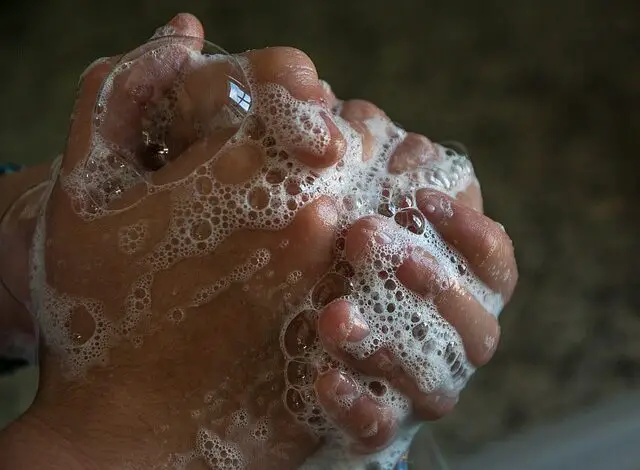Hand Hygiene in Healthcare Settings: Why Is It So Important?

In order to prevent the spread of infection, it is important for healthcare workers to practice good hand hygiene. This article will discuss the reasons why hand hygiene is so important in healthcare settings.
Building Trust
First of all, a clean hospital setting will radiate trust among the people who are admitted there. You always need to work toward the best patient satisfaction the healthcare sector can provide because that is a fundamental element of building trust. If patients see trash on the floor or grime on the walls, they are going to think that the staff doesn’t care about providing them with quality care. They will question how much time the nurses and doctors spend taking care of them if they can’t even keep their own environment clean.
For example, if a patient sees that all the healthcare workers around them are consistently practicing hand hygiene, it will show that the staff is taking infection control seriously. The patient will be more likely to trust that they are in good hands and that the staff is taking all the necessary precautions to protect their health.
Keeping Patients Safe
The safety of your patients should always be the number one priority. One of the best ways to keep them safe is by practicing proper hand hygiene. Whether you’re a doctor, nurse, or any other type of healthcare worker, keeping your hands clean is one of the most important things you can do to protect your patients from infection and illness.
These people are already there because something bad has happened to them, and they don’t need anything else to make their situation worse. That’s where you come in. By keeping your hands clean, you can help prevent the spread of bacteria and other germs that could make them sicker.
It’s easy to think that your hands are clean enough, but it only takes a few moments for bacteria to transfer from your hands to your patients. Make sure you’re always keeping them clean by washing them thoroughly and often, using hand sanitizer, and wearing gloves when appropriate.
Protecting the Workers
Practicing hand hygiene will also keep all employees safe in healthcare settings. By protecting the workers, they are able to protect themselves and those around them from getting sick. Hand hygiene is one of the most important ways to prevent the spread of infection and illness. It is also important to practice good respiratory etiquette by coughing or sneezing into a tissue or your elbow and avoiding close contact with others.
For example, if an employee is sick, they should stay home from work to avoid spreading their illness to others. If they must come to work, they should wear a face mask and practice good hand hygiene.
Reducing Chances of an Outbreak
A careless healthcare setting can cause an outbreak in the entire community. A recent example is the outbreak of COVID-19, which started in Wuhan, China. The virus quickly spread to other countries and caused a global pandemic. This event highlights why reducing the chances of an outbreak should be a priority in healthcare settings.
One way to reduce the chances of an outbreak is through hand hygiene. This means that healthcare workers clean their hands with soap and water or an alcohol-based hand rub. Hand hygiene is important because it removes dirt, viruses, and other germs from hands. This reduces the chances that these germs will be spread to others.
Keeping the Equipment Clean
There are a lot of equipment healthcare providers work with. Some of them are the following:
- stethoscopes
- blood pressure cuffs
- thermometers
- gloves
- mats
- scalpels
- ECG machines
It’s important to keep this equipment clean as a reason for hand hygiene in healthcare settings. If the equipment isn’t clean, it can spread germs and bacteria. This can cause infections or make them worse.
For example, if a thermometer isn’t clean and you use it on a patient, the patient could get sick. The same goes for gloves. If you’re going to be handling a patient’s blood, you need to make sure your gloves are clean.
Avoiding Legal Trouble
Being cared for by a medical worker who doesn’t respect hand hygiene rules can be enough for some people to file a medical malpractice lawsuit. If you work in healthcare, avoiding legal trouble should be one of your top priorities when it comes to hand hygiene.
Some examples of situations where not following proper hand hygiene protocol could lead to a lawsuit include:
- A patient contracts an infection while in the hospital and sues for negligence
- A surgical patient has an allergic reaction to gloves that were not properly sanitized
- A patient catches a cold from a doctor who did not wash their hands after coughing
In order to avoid any legal trouble, it is important to always practice good hand hygiene and follow the protocol that is set by your healthcare facility.
Compliance
Every healthcare facility must be in compliance with the Centers for Medicare and Medicaid Services (CMS) standards. In order to do so, healthcare workers must practice hand hygiene. Hand hygiene compliance rates have been shown to be as low as 40%.
One of the main reasons compliance is so important is because it helps to prevent the spread of infection. Infection control is a top priority in healthcare facilities, and compliance with hand hygiene standards is one of the best ways to maintain a high level of infection control.
You want all your doctors to be responsible. Otherwise, they are certainly not a good fit for the services your faculty is providing.

Hospital Reputation
Proper hand hygiene will elevate the hospital’s reputation. This means that the hospital will be known for its cleanliness, which will attract more patients. Being known as a clean hospital is good for business, as it will increase the hospital’s revenue. In addition, hospital staff will be proud to work in a hospital with a good reputation. This can lead to better morale among employees, which can improve the quality of care.
Finally, a hospital with a good reputation is more likely to attract top talent. This includes doctors, nurses, and other hospital staff. This can further improve the quality of care at the hospital.
Every healthcare facility must be on top of its hygiene rules as it builds trust with patients and protects them. You’ll also be protecting your workers and reducing the chances of an outbreak in your community. The equipment will also always stay clean and you’ll avoid legal trouble and stay compliant. Finally, this will improve the reputation of your hospital making it the first choice for most patients in your area!





